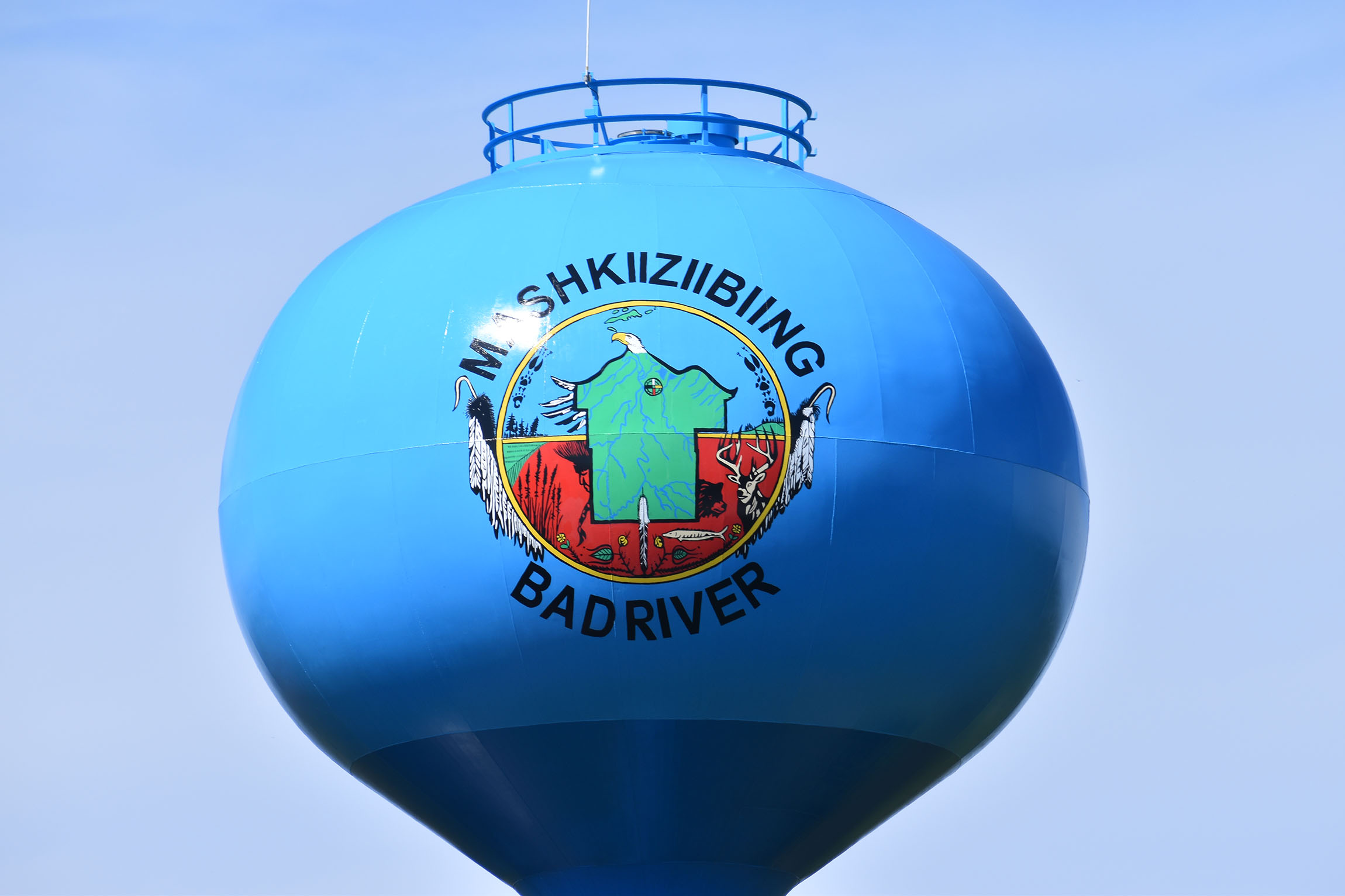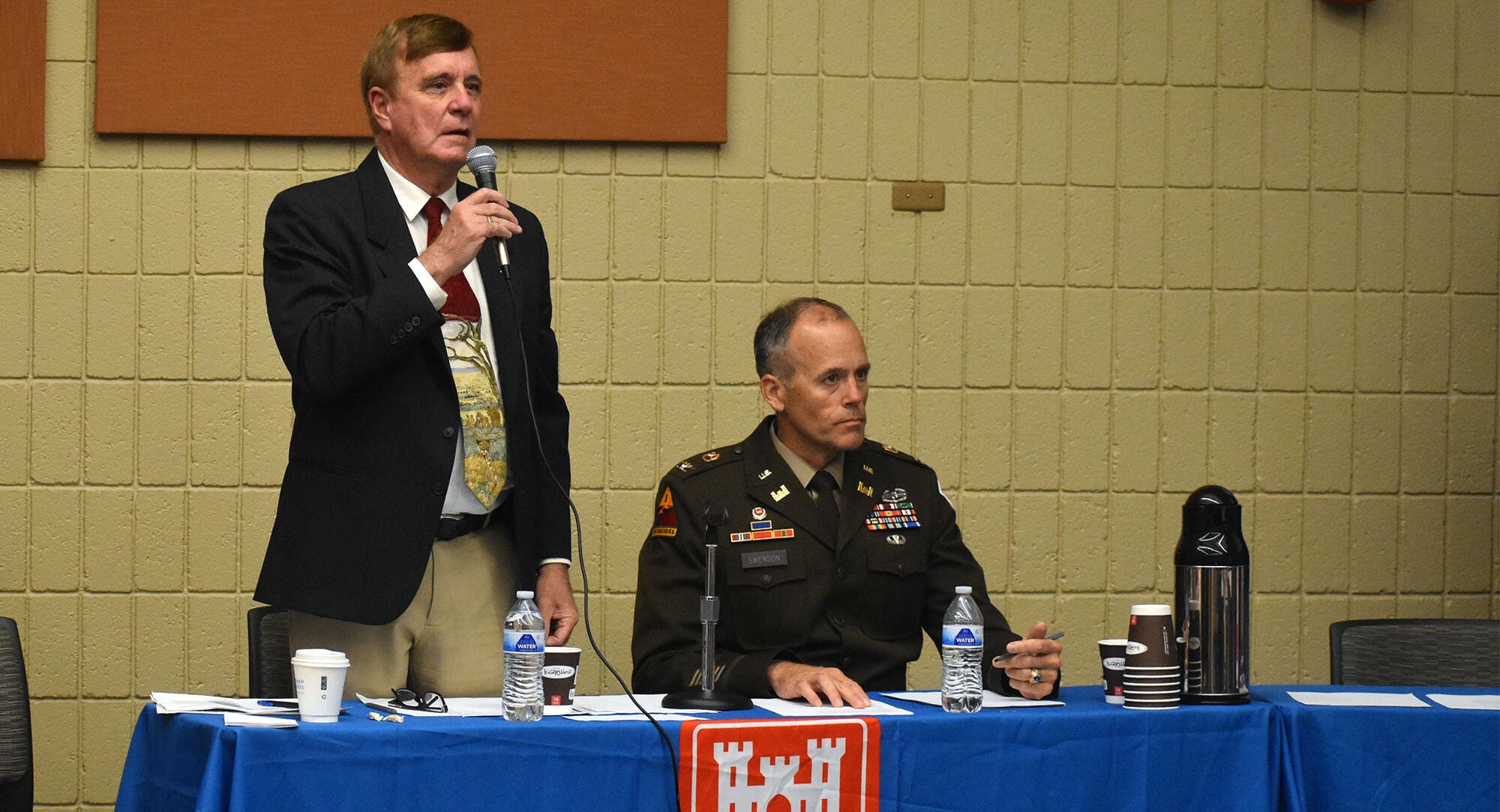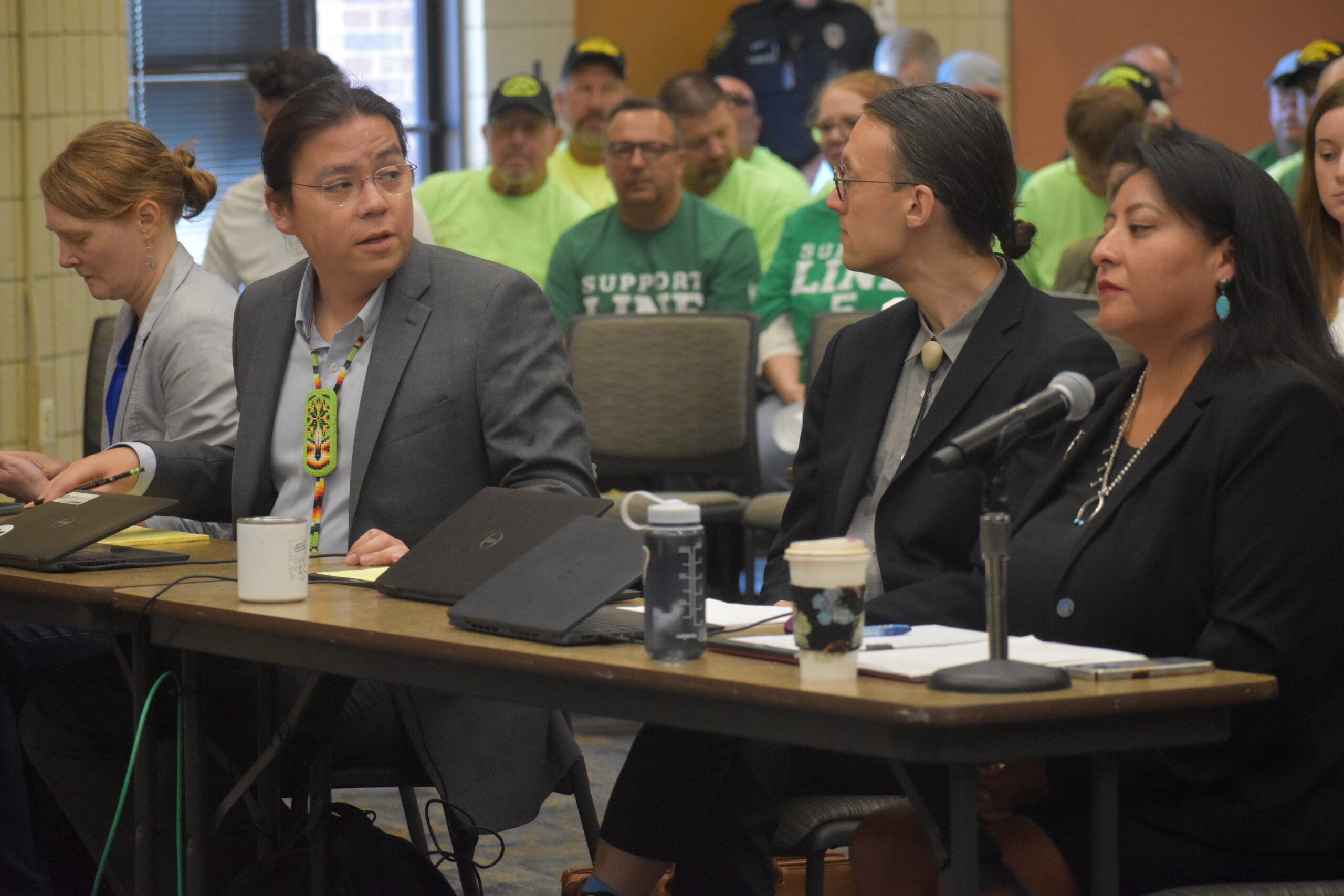Federal environmental regulators and a Canadian energy firm say data doesn’t support a northern Wisconsin tribe’s claims that rerouting an oil and gas pipeline will violate water quality standards on its reservation.
Tribal officials and experts argue those conclusions rely on inaccurate information that underestimates the project’s effects on the watershed and number of wetlands impacted.
The U.S. Army Corps of Engineers held a virtual hearing Tuesday after the Bad River Band of Lake Superior Chippewa objected to permitting Enbridge’s planned Line 5 reroute under the Clean Water Act.
Enbridge proposed relocating Line 5 after the Bad River tribe sued the company in 2019 to shut down and remove the pipeline from its lands. The pipeline runs 645 miles and carries up to 23 million gallons of oil and natural gas liquids daily from Superior through northern Wisconsin and Michigan to Sarnia, Ontario.
Information submitted by the tribe didn’t support Bad River’s finding that the project would violate its water quality, according to Tera Fong, water division director for Region 5 with the Environmental Protection Agency.
“The materials EPA reviewed did not provide data, studies or modeling analysis that showed and quantified impacts of distance from any given discharge point to water quality on the reservation, the likelihood of discharges, including discharges of pollutants traveling from groundwater to surface waters and then to the reservation boundary,” Fong said.
The EPA in 2009 approved the tribe’s water quality standards, which go beyond state standards. Three years ago, EPA Regional Administrator Debra Shore said the project will result in “substantial and unacceptable” impacts to the Bad River and Bad River-Kakagon Sloughs, home to the tribe’s wild rice beds and wetlands of national significance.
Bad River Tribal Chair Robert Blanchard argued that permitting the project would cause irreparable harm to its lands and all living things.
“As Anishinaabe, we believe every living plant or animal has a spirit. Even the water has spirit. Whatever happens upstream from our reservation will affect the waters that we and many others depend on for survival,” Blanchard said.
The Line 5 reroute is slated to cross more than 200 waterways, and it will affect 101 acres of wetlands in Ashland and Iron counties. The Wisconsin Department of Natural Resources in November issued permits and a water quality certification, which the tribe and environmental groups are challenging. The tribe said the agency didn’t consider its standards.

News with a little more humanity
WPR’s “Wisconsin Today” newsletter keeps you connected to the state you love without feeling overwhelmed. No paywall. No agenda. No corporate filter.
Bad River says blasting and filling wetlands will harm water quality
Bad River argues the project would affect its water quality by blasting bedrock, dredging or filling wetlands and disrupting groundwater flows. The tribe and its experts say work could increase water temperatures, runoff, invasive species or contamination from PFAS and mercury. They also fear aquifer breaches and inadvertent releases similar to those that occurred on Enbridge’s Line 3 replacement in Minnesota.
Joe McGaver, Enbridge’s environmental projects manager, said effects to wetlands would be temporary and only an area roughly the size of a small house would be permanently filled. Enbridge and its consultants said it doesn’t expect conditions similar to those that led to aquifer breaches on Line 3 and designed the project to avoid releases.
“We don’t want to have inadvertent [releases] as much as anybody because of the impacts and then the extra effort to clean it up and other social implications with having a release,” McGaver said.
Matt Horn, principal scientist for engineering firm Tetra Tech, which is working for Enbridge, said such releases related to drilling to install the pipeline could result in more sediment runoff in waters more than a mile upstream of the reservation. Enbridge’s consultants also said the project wouldn’t result in increased levels of mercury, PFAS or nitrates flowing into the tribe’s boundaries.
The tribe’s experts disputed findings from Enbridge’s consultants, including Esteban Chiriboga, environmental specialist with the Great Lakes Indian Fish & Wildlife Commission. He said distance from the reservation doesn’t mean the company would comply with water quality standards.
“Because contaminants can and do persist in the water column for fairly large distances,” Chiriboga said. “The land alterations caused by pipeline construction and operation will cause some changes in water quality, and the close proximity to the reservation means that there’s little opportunity for dilution.”
The company’s consultants also said the project wouldn’t result in measurable effects to flow rates or temperatures of surface waters flowing into the reservation. They added that blasting won’t affect groundwater or nearby wells. Experts for the tribes disputed that.
The hearing continues Wednesday with an opportunity for the public to weigh in online from noon to 7 p.m.
The Line 5 reroute is expected to cost more than $500 million. Enbridge said it will generate millions of dollars in local spending during construction and create more than 700 jobs, but it’s still locked in a legal battle with the tribe.
In 2023, U.S. District Judge William Conley ordered the company to pay $5.15 million for trespassing on the Bad River tribe’s lands where its pipeline easements expired. He also ordered the company to shut down or reroute Line 5 where it’s illegally operating by June 2026.
Both the tribe and Enbridge are appealing that decision in the Seventh Circuit Court of Appeals, and a ruling is still pending.
Wisconsin Public Radio, © Copyright 2026, Board of Regents of the University of Wisconsin System and Wisconsin Educational Communications Board.




